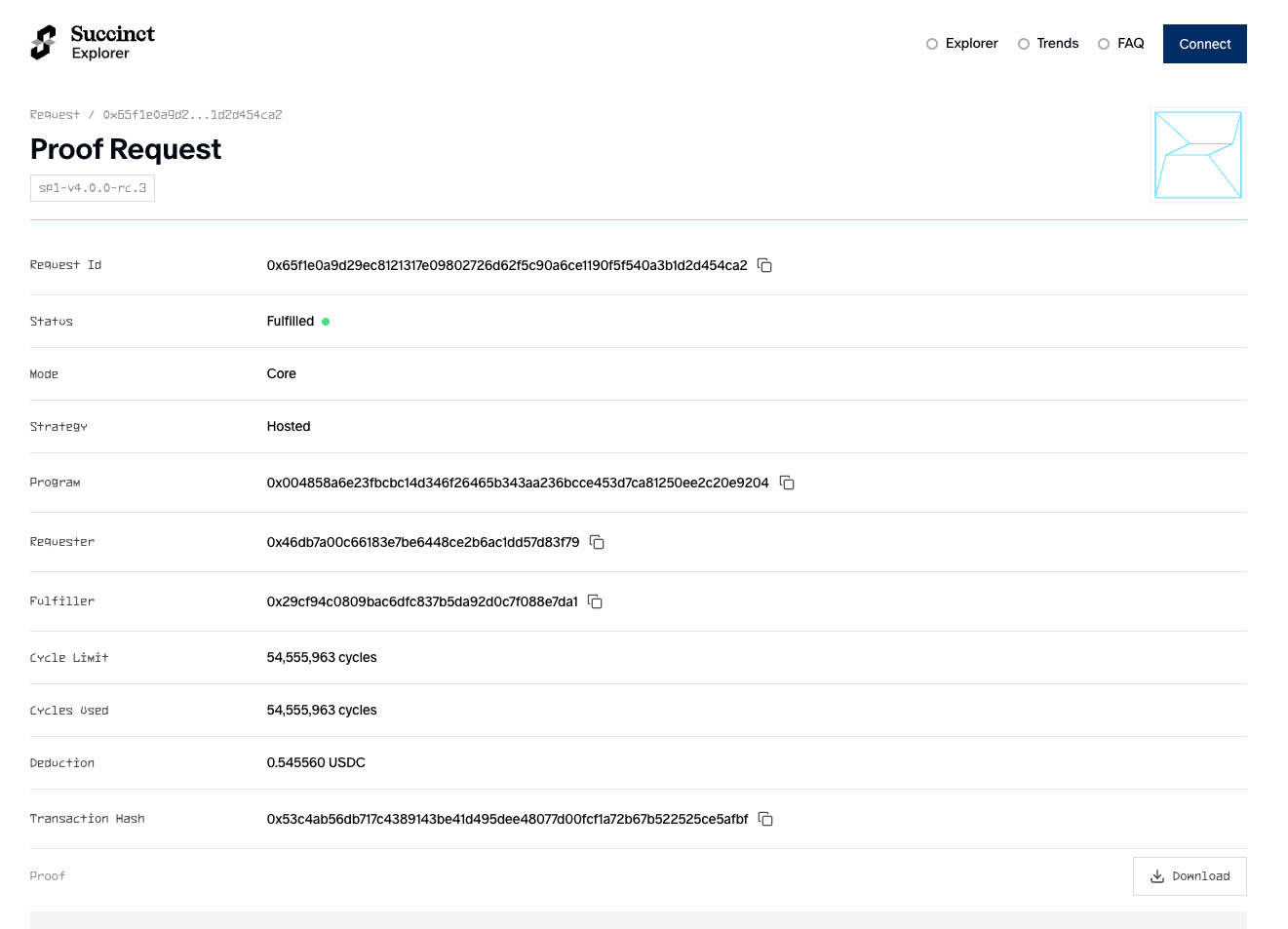Prover Network: Usage
See Supported Versions for the currently supported versions of SP1 on the Prover Network.
Sending a proof request
To use the prover network to generate a proof, you can run your script that uses sp1_sdk::ProverClient as you would normally but with additional environment variables set:
// Generate the proof for the given program.
let client = ProverClient::from_env();
let (pk, vk) = client.setup(ELF);
let mut proof = client.prove(&pk, &stdin).run().unwrap();
SP1_PROVER=network NETWORK_PRIVATE_KEY=... RUST_LOG=info cargo run --release
-
Set
SP1_PROVERtonetwork(default iscpu). Configuring this variable tonetworkwill use the prover network. -
NETWORK_PRIVATE_KEYshould be set to your private key. You will need to be using a whitelisted key to use the network. -
NETWORK_RPC_URL: Defaults tohttps://rpc.production.succinct.xyz. This is the RPC URL of the prover network.
When you call any of the prove functions in ProverClient now, it will first simulate your program, then wait for it to be proven through the network and finally return the proof.
View the status of your proof
You can view your proof and other running proofs on the explorer. The page for your proof will show details such as the stage of your proof and the cycles used. It also shows the vk hash of the program.

Advanced Usage
If you are using the prover network in a production system, or otherwise want to use advanced features, you should use sp1_sdk::NetworkProver directly.
Advanced features include:
- Skipping local simulation
- Requesting a proof, which returns a proof ID, and then waiting for the proof to be fulfilled
- Async support
- Requesting a proof using a custom fulfillment strategy, such as for reserved prover network capacity
use sp1_sdk::{network::FulfillmentStrategy, Prover, ProverClient};
use std::time::Duration;
let prover = ProverClient::builder().network().build();
let (pk, vk) = prover.setup(ELF);
// Request proof and get the proof ID immediately
let request_id = prover.prove(&pk, &stdin).groth16().skip_simulation(true).request_async().await.unwrap();
println!("Proof request ID: {}", request_id);
// Wait for proof complete with a timeout
let proof = prover.wait_proof(request_id, Some(Duration::from_secs(60 * 60))).await.unwrap();
// Request a proof with reserved prover network capacity and wait for it to be fulfilled
let proof = prover
.prove(&pk, &stdin)
.groth16()
.skip_simulation(true)
.strategy(FulfillmentStrategy::Reserved)
.run_async()
.await
.unwrap();
// Request a proof and then block immediately (up to a timeout) until the proof is fulfilled
let proof = prover
.prove(&pk, &stdin)
.groth16()
.skip_simulation(true)
.fulfillment_strategy(FulfillmentStrategy::Reserved)
.timeout(Duration::from_secs(60 * 60))
.run()
.unwrap();